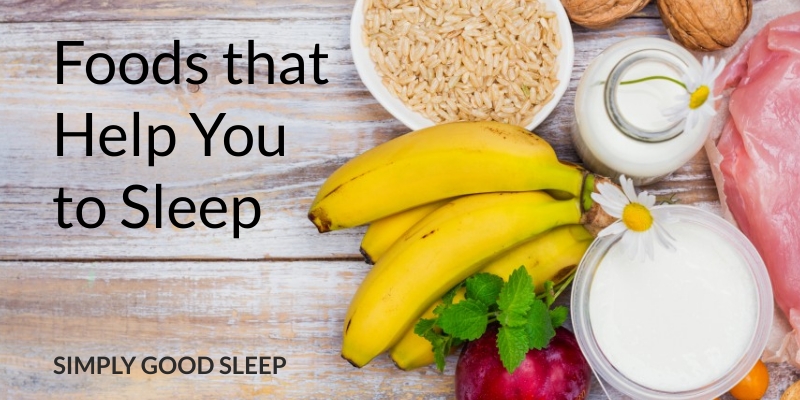
Sleep is the foundation of good health. Getting adequate quality sleep may boost your immune system, helps keep your brain healthy, and reduce your risk of developing certain chronic illnesses, such as diabetes and heart disease. The good news is that there are several foods you can eat before bed that can help you to sleep. Foods rich in carbohydrates, melatonin, tryptophan, calcium, magnesium, and vitamin B6 can all help you get good sleep. Here are some of the best foods that help you to sleep.
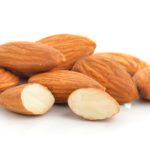 Almonds
Almonds
Almonds are naturally rich in melatonin – the “sleep hormone”. About one ounce of almonds has around 77 mg of magnesium and 76 mg of calcium. These nutrients help promote healthy sleep and relaxation. That’s to say nothing of how healthy almonds can be, given that they are rich in healthy fats and low in saturated fat and sugar.
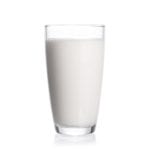 Warm Milk
Warm Milk
Many people know warm milk to be a good way to sleep better. Milk contains nutrients – calcium, melatonin, vitamin D, and tryptophan – that promote sleep. An interesting thing with warm milk is that our mental association with it promoting sleep could be more effective than the nutrients in it. We believe that drinking warm milk helps us sleep, and so it does. Of course, the minerals play a part in that.
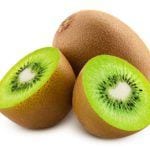 Kiwifruit
Kiwifruit
Kiwifruit has been shown to have a connection to sleep. A small study showed that people who consumed two kiwis up to an hour prior to bedtime for four weeks fell asleep faster and slept better. Like almonds and milk, kiwifruit contains melatonin, calcium, and other sleep-promoting nutrients.
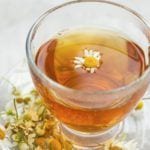 Chamomile Tea
Chamomile Tea
Chamomile is a herb that has been used to treat insomnia for years. Researchers believe that the flavonoid agipenin could be the reason that chamomile induces sleep. It appears to activate GABA A receptors, which stimulates sleep. Having a nice cup of tea before bed also relaxes you and makes it easier to drift off in general.
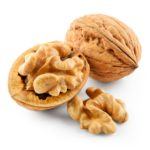 Walnuts
Walnuts
Walnuts contain several compounds that can help improve sleep quality. They have serotonin, melatonin, and magnesium. Walnuts also have folate in them. One serving of walnuts contains about 441 mg of potassium and 158 mg of magnesium.
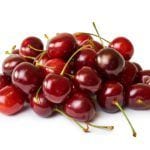 Tart Cherries
Tart Cherries
Cherries contain melatonin, potassium, serotonin, and tryptophan. Researchers believe that the antioxidant polyphenols in tart cherries in particular can help with sleep regulation. A 2018 study assessed the health benefits of cherry and showed there was a positive correlation between eating cherries and sleeping better.
 Fatty Fish
Fatty Fish
Fatty fish is a good choice for a pre-bed snack because it has a lot of vitamin D and omega-3 fatty acids. These are two nutrients that help to regulate levels of serotonin, an important hormone that helps with sleeping. A study from 2014 showed that people who ate 300 grams of Atlantic salmon three times a week for six months had an easier time falling asleep – and had more restful sleep – than those who ate other meat products.
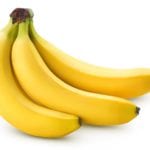 Bananas
Bananas
Bananas contain the natural muscle-relaxants potassium and magnesium. Bananas are also carbohydrates which will help make you sleepy as well.
Dietary Do’s and Don’ts for Better Sleep
Here are some additional dietary tips to help improve sleep:
1. Eat a balanced diet that includes fresh fruits and vegetables, whole grains, and low-fat proteins. Eating well may help you maintain a healthy weight and stave off sleep problems, such as sleep apnea.
2. Avoid any food that may cause heartburn, such as spicy or fatty foods. Instead of fried foods, choose baked or grilled foods.
3. Finish your main evening meal no later than 2 to 4 hours before bedtime to give enough time for your body to digest the meal and to settle down.
4. Caffeine may be found in foods, such as coffee, tea, cola, and chocolate. Avoid caffeine after 2:00 p.m. or at least 6 hours prior to bedtime.
5. Avoid alcohol. Alcohol may help you sleep quickly, but its effect wears off during the night, causing fragmented sleep and decreased deep sleep. Try to avoid alcohol 6 hours before bedtime.
6. Pass over sugar-laden foods, white bread, and white pasta. Opt for healthy food alternatives, such as whole-grain foods, such as whole wheat crackers.
7. Stay hydrated throughout the day. However, you may wish to avoid fluids prior to bedtime to prevent having to wake up and go to the bathroom in the middle of the night.
8. Practise good sleep hygiene. Sleep and wake at the same time each day. Set your bedroom to a cool temperature, and block out light with a sleep mask or blackout curtains.
Summary
While eating too close to bedtime can make it difficult to fall asleep, there are several foods that can actually make it easier. Foods that help you to sleep, like milk, salmon, bananas, kiwi fruits, cherries, almonds, and walnuts are packed full of minerals that help regulate the sleep-wake cycle. These foods may have you falling asleep in no time.
As always, consult a health professional before starting or stopping any medication or supplement, or making changes to your diet, to ensure that it will not interact with other medications that you are taking or with existing medical conditions.

4 Responses
Tart cherries, bananas, or kiwis? Which fruit is the best fruit for sleep?
Tart cherries, bananas, or kiwis? – they’re all good!
All fruits are healthy, and each has its unique nutritional value. What one fruit lacks in nutrients, another fruit provides.
Eat tart cherries one evening and a banana or a kiwi on another evening. Or, blend a combination of these fruits, to get the different types of nutrients you need and to make falling (and staying!) asleep easier!
Tart cherry juice is AWESOME for sleep!! I can really tell that it helps to boost my melatonin levels. I take a few shots before bed and make sure my room is nice and dark (no tv or phone screens). It’s also super convenient to have the juice on hand since eating fresh tart cherries are a seasonal thing.
Tart cherry juice, naturally rich in melatonin, can be a safe and effective way to increase the amount of sleep you get each night.
Glad you have found a food that helps you get a good night’s sleep!